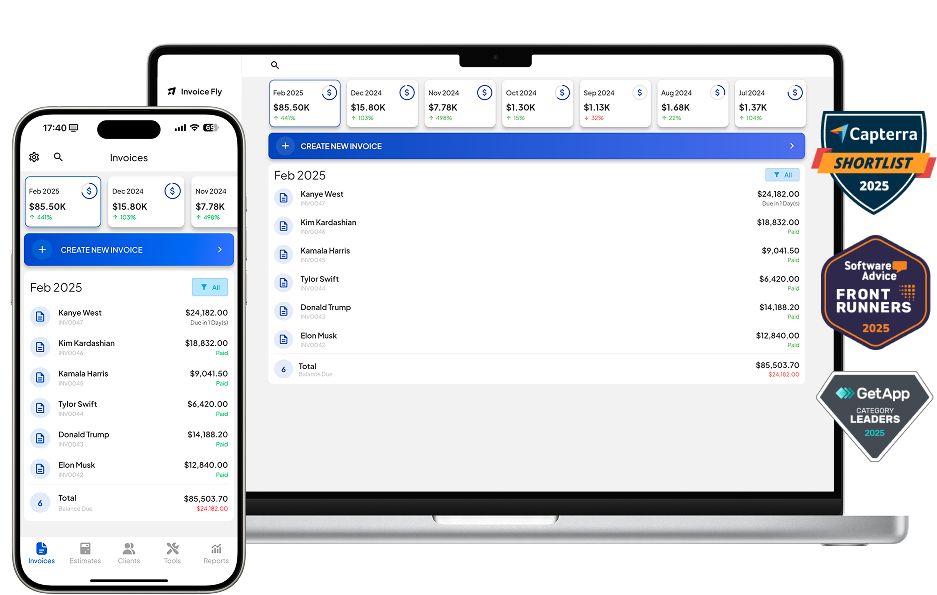- Home
- »
- Glossary Of Terms
- »
- Lien Waiver
What Is A Lien Waiver?
A lien waiver is a legal document used in construction and development projects where one party (typically a contractor, subcontractor, or material supplier) relinquishes their right to place a mechanic’s lien on a property in exchange for payment. Essentially, it serves as a receipt confirming that payment has been received or will be received, and that the right to file a lien is being surrendered.

The Purpose of Lien Waivers
Lien waivers serve multiple purposes in construction payment processes:
- Payment verification: They confirm that payment has been or will be made
- Risk reduction: They protect property owners from double payment claims
- Cash flow facilitation: They help ensure timely payments throughout the project
- Legal protection: They provide documentary evidence of payment exchange
- Project continuity: They help prevent payment disputes that could halt construction
Types of Lien Waivers:
There are four primary types of lien waivers used in construction projects:
| Type | When Used | What It Waives | Risk Level |
|---|---|---|---|
| Conditional Waiver on Progress Payment | When making periodic payments before completion | Lien rights for specific work period, but only after payment clears | Low for both parties |
| Unconditional Waiver on Progress Payment | After a progress payment has cleared | Lien rights for specific work period, regardless of payment issues | Higher for contractors |
| Conditional Waiver on Final Payment | When making final payment | All remaining lien rights, but only after payment clears | Low for both parties |
| Unconditional Waiver on Final Payment | After final payment has cleared | All remaining lien rights, regardless of payment issues | Higher for contractors |
The Importance of Lien Waivers
in Construction Projects
Lien waivers are fundamental to the construction payment ecosystem, providing protection and clarity for all stakeholders.
1. For Property Owners and Developers
For those funding construction projects, lien waivers:
- Protect against paying twice for the same work
- Provide clear documentation of payment history
- Reduce the risk of property title issues
- Help maintain project timelines by preventing payment disputes
- Create transparency in the payment process
According to industry data, properties with unresolved liens can face value reductions of 25% or more and significantly complicate future sales or refinancing.
2. For Contractors and Subcontractors
For those performing the work, lien waivers:
- Help establish professional credibility
- Facilitate faster payment processing
- Create documentation of payment history
- Provide leverage in payment negotiations
- Clarify payment expectations and timelines
3. For Material Suppliers
For companies providing construction materials, lien waivers:
- Protect rights to payment for delivered goods
- Create clear documentation of supply fulfillment
- Help maintain positive relationships with contractors
- Provide legal recourse options when needed
- Streamline the payment collection process
Key Areas of Lien Waiver Management
Effective lien waiver management involves several critical components:
1. Legal Compliance
Lien waiver requirements vary significantly by jurisdiction:
- Statutory forms: 12 states require specific lien waiver formats
- Language requirements: Some states prohibit certain waiver provisions
- Notarization requirements: Several states require notarized waivers
- Timing restrictions: Laws may dictate when waivers can be requested
Using non-compliant waivers can render them unenforceable, creating significant risks for all parties.
2. Documentation Systems
Maintaining organized lien waiver documentation includes:
- Systematic filing of all executed waivers
- Digital tracking of waiver status
- Integration with payment processing systems
- Regular audits of waiver documentation
- Backup systems for waiver archives
3. Payment Synchronization
Effective practices for aligning payments with waivers:
- Matching waiver amounts to invoice/payment amounts
- Verifying waiver dates against payment dates
- Ensuring appropriate waiver type for payment stage
- Confirming authorized signatures on all waivers
- Validating that waivers cover all potential lien claimants
4. Dispute Resolution
When issues arise with lien waivers:
- Documented escalation processes
- Clear communication protocols
- Legal counsel involvement when appropriate
- Mediation before litigation
- Preservation of all relevant records
Benefits of Using
Digital Lien Waiver Solutions
Modern invoicing software like InvoiceFly offers significant advantages for lien waiver management:
Efficiency Improvements
Digital lien waiver solutions provide:
- Automated waiver generation: Create proper waivers in seconds
- Template libraries: Access compliant forms for all jurisdictions
- Batch processing: Handle multiple waivers simultaneously
- Integration with payment systems: Sync waivers with payment status
- Digital signature capabilities: Obtain signatures without delays
Risk Reduction
Technology reduces lien waiver risks through:
- Compliance checking: Automatic verification of waiver requirements
- Error prevention: Form validation before submission
- Audit trails: Complete history of all waiver activities
- Backup systems: No lost or misplaced waivers
- Centralized storage: One secure location for all documents
Financial Benefits
Digital lien waiver management delivers:
- Faster payment processing: Reduce payment delays by up to 75%
- Lower administrative costs: Decrease paperwork expenses by 50-80%
- Reduced payment disputes: Minimize costly payment conflicts
- Better cash flow management: Improve payment predictability
- Lower legal expenses: Decrease dispute-related legal fees
How to Measure and Manage
Lien Waiver Processes
Optimizing your lien waiver procedures involves several key practices:
Establishing KPIs for Lien Waiver Management
Track these metrics to measure efficiency:
- Waiver turnaround time: Average days from request to receipt
- Waiver completion rate: Percentage of required waivers obtained
- Error frequency: Number of incorrect or incomplete waivers
- Processing cost: Average cost to prepare and process each waiver
- Dispute frequency: Number of waiver-related payment disputes
Best Practices for Lien Waiver Management
For Property Owners
- Request appropriate waiver types for each payment stage
- Verify all waivers before releasing payments
- Maintain complete waiver documentation throughout projects
- Use conditional waivers when processing payments
- Confirm waiver compliance with local regulations
For Contractors and Suppliers
- Understand your lien rights in each jurisdiction
- Review all waivers carefully before signing
- Keep copies of all executed waivers
- Use conditional waivers whenever possible
- Maintain clear records of all payments received
Implementing Digital Lien Waiver Solutions
For successful technology adoption:
- Select appropriate software: Choose solutions like InvoiceFly that offer comprehensive lien waiver features
- Train team members: Ensure all staff understand the digital process
- Create standard procedures: Develop consistent protocols for all projects
- Integrate with existing systems: Connect with accounting and project management platforms
- Monitor performance: Regularly assess efficiency improvements and cost savings
FAQs about Lien Waivers
If you sign an unconditional lien waiver and payment fails, you may have surrendered your lien rights regardless. This is why conditional waivers are strongly recommended when payment hasn't yet cleared. If this has happened, consult with a construction attorney immediately as you may have other legal remedies available even if lien rights are waived.
It depends on your state laws. In some states, it's illegal to require unconditional waivers before payment, while others allow this practice. However, best practice is to use conditional waivers for unprocessed payments. If you're being pressured to sign unconditional waivers before payment, suggest conditional waivers as an alternative that protects both parties.
Your lien waiver typically doesn't waive the rights of your subcontractors or suppliers unless they also sign waivers. This creates significant risk for property owners who might pay you but still face liens from your unpaid subcontractors. This is why many projects require "upstream" contractors to collect and provide waivers from all "downstream" parties who provided labor or materials.
This creates serious risks. If the waiver amount exceeds the payment, you may be waiving rights to more money than you received. If the waiver amount is less than the payment, it may not fully protect the property owner. Always ensure the amounts match exactly, or clearly document any discrepancies with separate waivers or written agreements explaining the difference.
In most jurisdictions, yes. The Electronic Signatures in Global and National Commerce Act (E-SIGN) and state-level Uniform Electronic Transactions Act (UETA) generally make electronic signatures legally binding. However, some states have specific requirements for construction documents. Using specialized construction software like InvoiceFly helps ensure compliance with electronic documentation requirements.
Though sometimes used interchangeably, they're technically different. A lien waiver prevents a potential future lien by waiving the right to file one, while a lien release removes a lien that has already been filed. The release is a formal document filed with the county recorder's office to clear the property title after a lien has been placed.
Retain all lien waiver documents for at least the duration of your state's statute of limitations for construction claims, typically between 3-10 years depending on jurisdiction. For major projects, many professionals recommend permanent archiving of these documents in digital format using secure cloud storage or document management systems.
With caution. In the 12 states with statutory forms, modifications may invalidate the waiver. In other states, modifications are possible but should be reviewed by an attorney. Common acceptable modifications include adding project identification information, clarifying payment application numbers, or adding conditional language for payment verification.

Other Free Resources

Try Invoice Fly Today
- Send quotes & invoices in seconds
- Collect card & online payments
- Receive instant notifications
- Win more jobs

